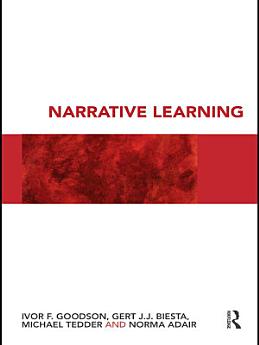Narrative Learning
ഈ ഇ-ബുക്കിനെക്കുറിച്ച്
Are there different patterns and forms of narrativity? How do they influence learning?
Based on data gathered for the Learning Lives project, which sought to understand learning by questioning individuals about their life stories, this book seeks to define a new learning theory which focuses on the role of narrative and narration in learning. Through a number of detailed case-studies based on longitudinal interviews conducted over three and four-year periods with a wide range of life story informants, Narrative Learning highlights the role of narrative and narration in an individual’s learning and understanding of how they act in the world. The authors explore a domain of learning and human subjectivity which is vital but currently unexplored in learning and teaching and seek to re-position learning within the ongoing preoccupation with identity and agency. The ‘interior conversations’ whereby a person defines their personal thoughts and courses of action and creates their own stories and life missions, is situated at the heart of a person’s map of learning and understanding of their place in the world.
The insights presented seek to show that most people spend a significant amount of time rehearsing and recounting their life-story, which becomes a strong influence on their actions and agency, and an important site of learning in itself. Narrative Learning seeks to shift the focus of learning from the prescriptivism of a strongly defined curriculum to accommodate personal narrative styles and thereby encourage engagement and motivation in the learning process. Hence the book has radical and far-reaching implications for existing Governmental policies on school curriculum.
The book will be of particular interest to professionals, educational researchers, policy-makers, undergraduate and postgraduate learners and all of those involved with education theory, CPD, adult education and lifelong learning.
രചയിതാവിനെ കുറിച്ച്
Ivor F. Goodson is Professor of Learning Theory at the Education Research Centre, University of Brighton, UK.
Gert J.J. Biesta is Professor of Education at the Stirling Institute of Education, University of Stirling, UK.
Michael Tedder is an honorary Research Fellow in the Graduate School of Education, University of Exeter, UK.
Norma Adair is a former Research Fellow at the Education Research Centre, University of Brighton, UK.





